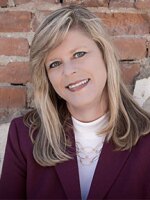Worship is different these days, no matter the faith.
Most houses of worship have closed, some before the state’s stay-at-home order was issued March 23. And Gov. Mike DeWine, a devout Catholic, says he’s not going to take further action.
“We’re not going to interfere with your First Amendment rights to practice your religion. But I don’t know any religion that teaches that you should do things that endanger, seriously endanger other people,” he said.
One of those places that shut down before the shutdown order is Temple Tifereth-Israel in Beachwood, east of Cleveland. Rabbi Jonathan Cohen said there were concerns about the health of congregants who had traveled. And he said with Passover underway, he knows it’s difficult because there are people who are isolated, and some who don’t have easy access to health care and support. And he called this a “multigenerational crisis,” affecting everyone from kids to the elderly.
“This is the need of the hour. This is the call of the moment. And we really must take it seriously," Cohen said. "It’s not only our own well-being. It’s not only the well-being of our family members, of our friends, of our close ones, and our loved ones. This is a moment of civic responsibility.”
Broad Street Presbyterian Church in Columbus changed its regular livestreamed services from the sanctuary into videos recorded by staff members from home and shared on Facebook. The Rev. Amy Miracle said she’s been doing a Bible study on Zoom and using calls and emails to reach out, and even stood on someone’s front lawn for a conversation. And she said she’s glad Holy Week, the most sacred time in the Christian calendar culminating in Easter Sunday, is coming at this time.
“We need a week where we’re intentionally focusing on our relationship with God, on our relationship to one another, and that’s really needed right now," Miracle said.
And she mentioned the church has tried to keep its food pantry open and stocked, which is also the story for other faith-based pantries, including those in the Muslim community.
Ramadan is one of the holiest periods of the year for Muslims. It starts April 23, and usually is a communal time of prayer, service and food. Amina Barhumi with the Council on American-Islamic Relations said most mosques have been doing services on Facebook and Zoom, but a real concern has been how to reach immigrants in their congregations who struggle to get information in their languages.
“We don’t have a lot of material that’s translated, either from the state or federal level. And so we’re having to be able to do that, because very often marginalized communities, communities who are new immigrants are in particular need of the help and the resources and the opportunities that are being laid out,” Barhumi said.
Catholics around the world have been celebrating Mass online for weeks. But Secretary and Vicar for Clergy and Religious for the Diocese of Cleveland Father Dan Schlegel said cathedrals and churches are open for private prayer, with no more than 10 people in at a time. Priests are using technology to reach out, and he said some passed out palm fronds and prayer packets at drive-ups on Palm Sunday. He’s even heard of a priest blessing people in his community from the bed of a pickup truck.
“These are ways that people are thinking outside the box creatively to abide by the rules. I think it is irresponsible to gather people together as that church is doing in southern Ohio,” Schlegel said.
He’s talking about the Solid Rock Church in Monroe, north of Cincinnati, which is still doing in person services in spite of pleas from local officials. The pastor fired back at those publicly denouncing his church, saying no one’s complaining about people crowding into stores. The latest stay-at-home order extended to May 1 says stores must limit the number of customers inside them.







